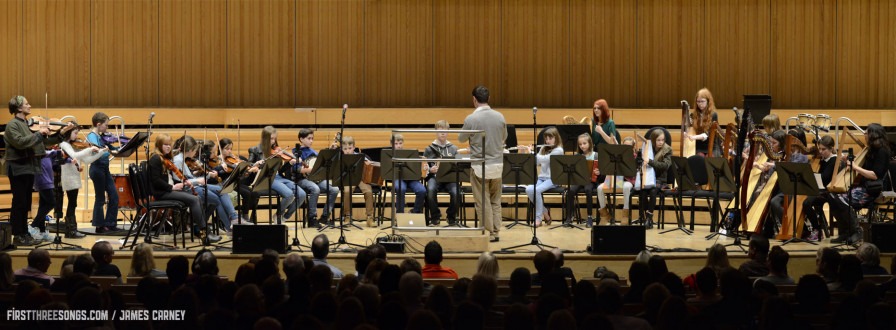Interim Report from Nov 2015

Having just completed our final report it was interesting to read back through our interim report from last November which we've posted excerpts from it in the hope that they may be useful to other organisations delivering projects on behalf of Youth Music.
As our young musicians instrumental and performance skills are progressing we are handling the challenge of balancing their individual needs with that of the wider performance ensemble very well.
Their ability to use music technology to combine aural and written music has also improved via weekly engagement with music software like Sibelius and Ableton Live as an important element of workshops sessions.
Unfortunately have fallen behind with initial plans to keep weekly observation diaries. Pupils’ progress is routinely discussed by music leaders, parents and young musicians on a weekly basis and outside assessors from the music service/hub have assessed our activities and found them to be excellent.
We clarify and reinforce the intent of each session by emailing out .pdf and .mp3 files relating to the materials covered each week as a means of offering wider support to our young musicians. Feedback of an informal nature only is provided by music leaders at this stage and is mainly positive in nature although there are differences in teaching styles that we have worked to ensure augments the quality of delivery. In accordance with QF criteria Y5 we never make comparisons between the progress of individuals or measure one’s ability against another. We employ a range of equipment and unique learning materials based on our own research into traditional music that exists in the region. Our workshop setting is suitable with practice rooms at the Carlisle Music Centre, though pupils in East Kilbride museum of rural life have benefitted from some outdoor sessions over the summer.
Time’s been set aside at the start of each week’s sessions for music leaders and visiting project partners to reflect on their own progress and the level and quality of support being offered to our young musicians. Alternatively this sometimes happens between sessions via group email. Picking music leaders for the project who already have links with the local music service and live scene has proved an effective way of ensuring that they’re aware of suitable progression routes. We envisage sharing more of our evaluation and monitoring data online via the Youth Music Network as we enter the 2nd half of stage 2. Our upcoming performance at the YM Regional festival in January will also be a great opportunity for us to meet and share research and learning materials with other YM providers as a means of building longer-term platforms for partnership work in future.
